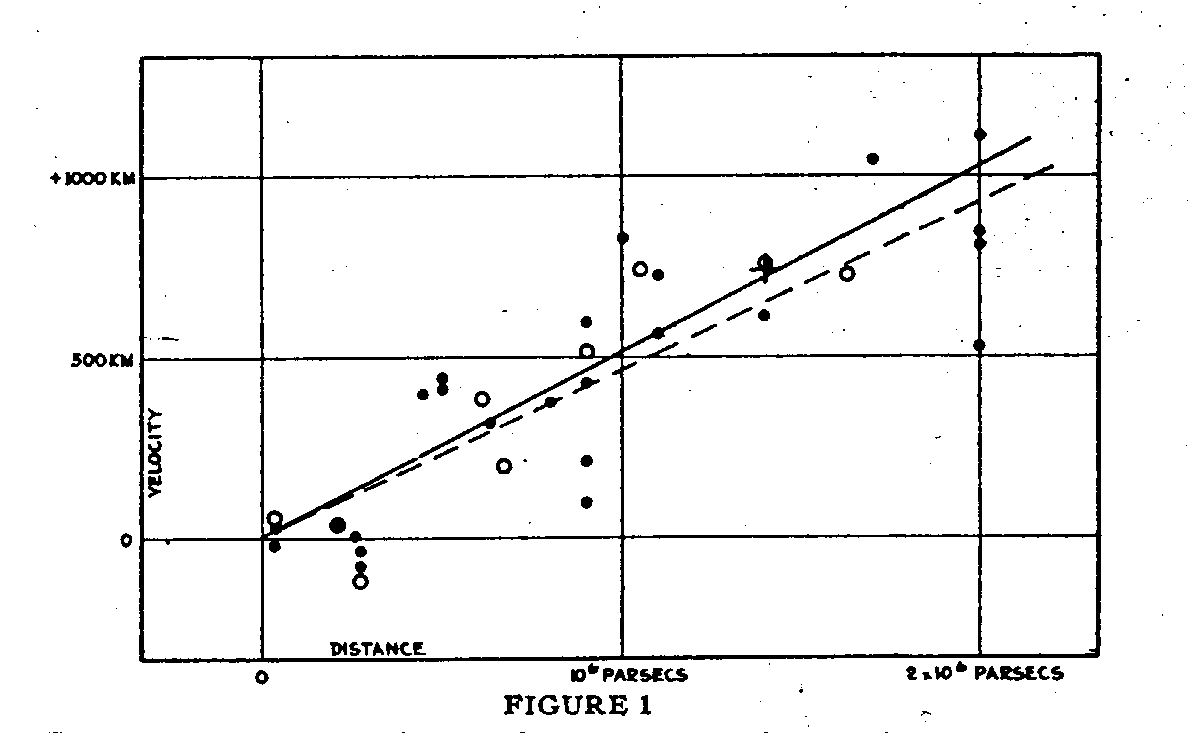In this series we are exploring the weird and wonderful world of astronomy jargon! You’ll expand your horizons with today’s topic: Hubble’s Law!
In 1929 astronomer Edwin Hubble made a remarkable measurement. Earlier in that decade, he had discovered that the Andromeda Nebula was not a nebula at all, but an entirely different galaxy completely separated from the Milky Way by millions of light-years of cold, hard nothing. He then expanded that initial discovery and began compiling a catalog of galaxies and their distances from us.
With that catalog in hand, he then used calculations of their velocities to find that those galaxies were receding away from us. What’s more, the more distant a galaxy sits from us, the faster away it’s receding. Hubble expressed this relationship between distance and velocity with a very simple equation, which today we call Hubble’s Law.
Hubble’s Law simply states that the recession speed of a galaxy is proportional to its distance. The amount of proportionality is called the Hubble constant, which we interpret as the present-day expansion rate of the universe.
Hubble’s law is a critical cornerstone of the big bang theory. It’s extremely difficult to replicate those results in any other theory of the evolution of the cosmos. For example, you may be able to come up with an explanation for why galaxies are receding away from us, but you’ll have a lot tougher time explaining why more distant galaxies are receding faster. But in the big bang theory, Hubble’s law becomes natural. Indeed, theoretical scientists working before Hubble’s measurement predicted the expansion of the universe and that something like the law would appear.
In the big bang theory, the entire universe is expanding. With every passing day, the space between galaxies stretches and stretches (on average, of course, because sometimes galaxies can collide). The more distance between us and a galaxy, the more space there is to stretch, and so the faster the galaxy appears to recede.
This measurement of Hubble cemented the big bang theory as the predominate explanation for the history of the universe, a position that many alternatives have tried – and failed – to overcome.

